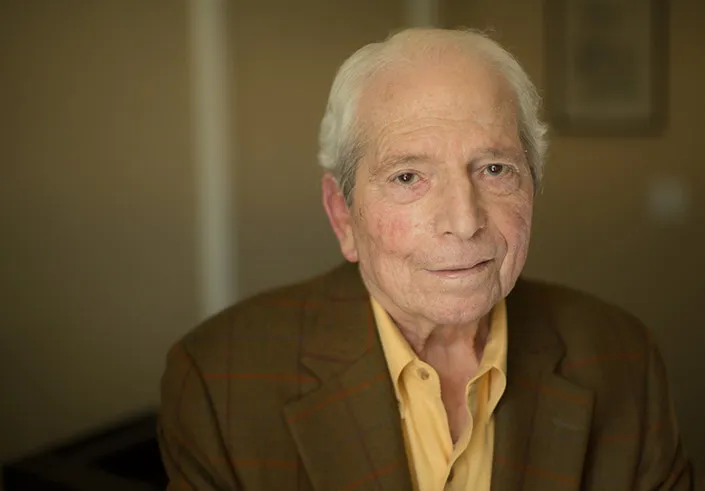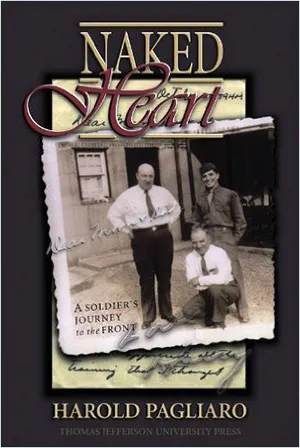Emeritus Professor Harold Pagliaro Reflects on Combat Experience

Seventy-two years removed from his military service, the fear of combat still lingers with Harold Pagliaro, Alexander Griswold Cummins Professor Emeritus of English Literature and Provost Emeritus.
“I still have nightmares about being sent to the front,” says Pagliaro, who was drafted into the U.S. Army as a naïve and optimistic 19-year-old during the Second World War. In one particular dream, Pagliaro is redrafted and, when he tells the draft board officer of his true age, his appeals fall on deaf ears and he’s sent back into service.
Pagliaro’s anxiety is similar to that of many who return from combat. In an attempt to come to terms with his experience, Pagliaro turned his memories into a memoir, Naked Heart: A Soldier’s Journey to the Front, which was published shortly after he retired from teaching at the College in 1992.
According to Pagliaro, the book, which is available in McCabe Library, is a tale “of what it’s like to be sent to the front. Thousands like me, boys just becoming men. We went up to the front lines alone.”

The idea for a memoir came to Pagliaro on a trip home to his parents’ house in the early 1990s. While there, he discovered a box of 200 letters he sent to his parents during the war. The letters were in stark contrast to what he recalls feeling at the time.
“I couldn’t believe how little they said of what I was experiencing,” he says. “I held back, I think, to keep my family from worrying.”
Trained for the infantry at Fort Benning, Ga., Pagliaro was taken from his division and sent directly into combat as a front line solo replacement in a reconnaissance unit, alongside soldiers he did not know. While in Europe, he was sent on high-risk patrol missions, with little guidance from his superiors and often in the dead of night. He recalls the emotions he felt at the time: fear of death from the night patrols, frustration that he knew little of the objectives of his missions, loneliness from fighting next to strangers.
Despite the near-constant danger, Pagliaro survived. He was ultimately sent home after a German shell fragment severely injured his right leg during an attack near the town of Erckartswiller, France. Pagliaro recovered after a long hospitalization. He says that even today, arthritis flares in the wounded leg are more frequent than in the "good" leg.
After being discharged from the Army in 1945, Pagliaro resumed classes at Columbia University, where he earned an A.B., M.A., and Ph.D. and taught from 1948-63. He came to Swarthmore in 1964, where he taught 18th-century English literature and English romanticism. He also served as provost from 1974 to 1980.
In addition to his memoir, Pagliaro is the author or editor of numerous other books and articles, including Selfhood and Redemption in Blake’s Songs (1987), Henry Fielding: A Literary Life (1998), and Relations Between the Sexes in the Plays of George Bernard Shaw (2004). At 90 and a longtime Swarthmore Borough resident, he continues to work in his Parrish Hall office most days. Over the past few years, he has written and published sonnets.
Since its publication, Naked Heart has drawn praise for its honesty and unique perspective. Along with the praise, Pagliaro admits that he has also received letters from baffled readers who cannot believe he found his wartime service less than ennobling.
Looking back, Pagliaro agrees there were positives to his war experience.
“I did a lot of growing up fast,” he says. “If anything, war left me cherishing life all the more, maybe because I came close to losing it. But the experience of war is overwhelmingly destructive – war is a loser. Hitler and Mussolini had to be stopped, of course. But there remains the question many ask: why are humans so ready to go to war?"



